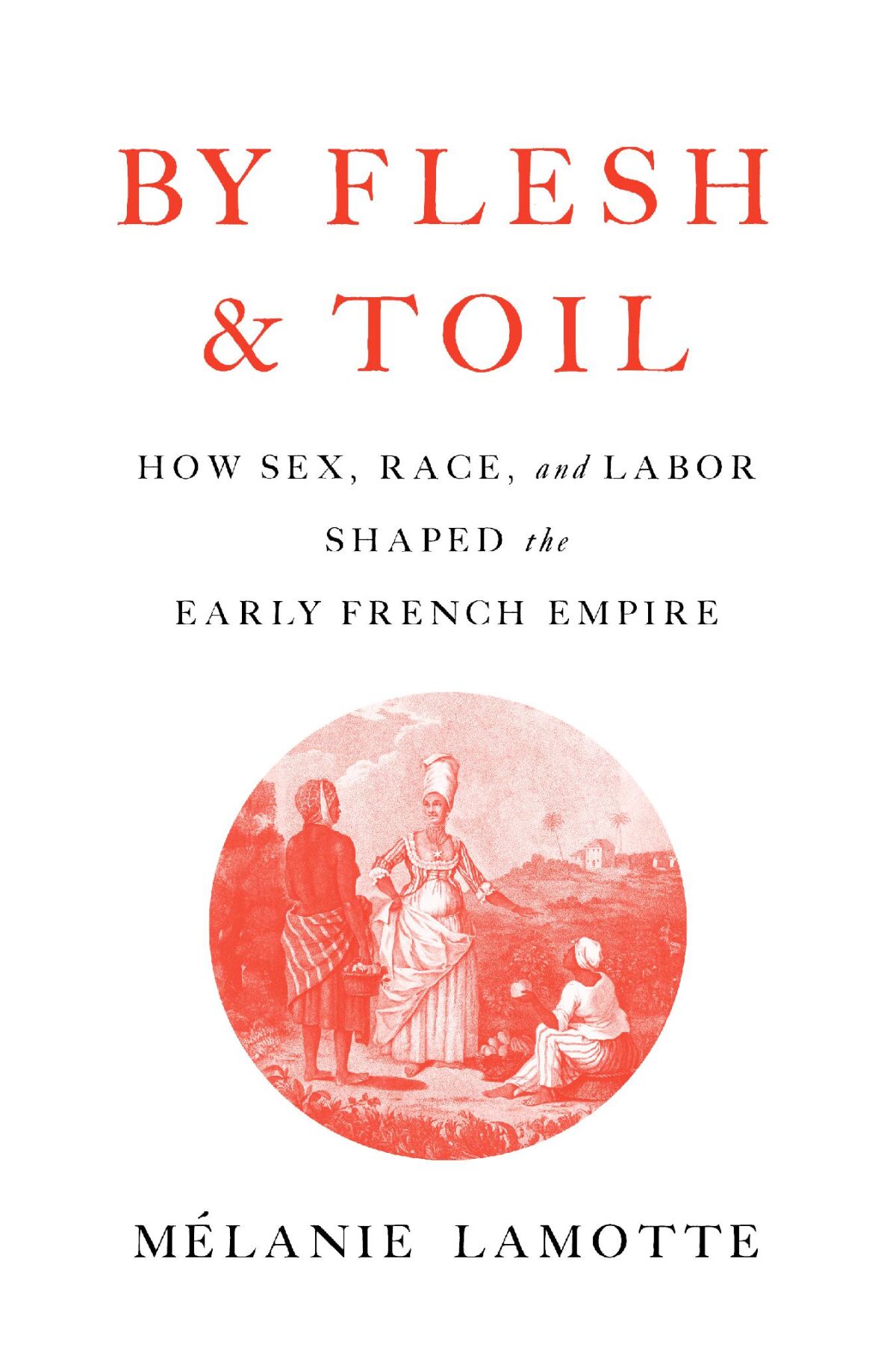
By Flesh and Toil: How Sex, Race, and Labor Shaped the Early French Empire
By Flesh and Toil is Prof. Lamotte's forthcoming book. It will be available for sale in 2025.
About the book
A richly detailed transoceanic history of the early French Empire, illuminating how it became bound by a common legal culture of race—as well as how enslaved and free people critically shaped the development of the colonies.
From the beginning of the seventeenth century, French colonies and trading posts sprawled across the Atlantic and Indian Oceans. In the first pan-imperial history of the early French Empire in the English language, Mélanie Lamotte shows how an increasingly cohesive legal culture came to govern the lives of enslaved and free people of African, Malagasy, South Asian, and Native American descent. She also illuminates the important role played by these populations in the development of the empire, from Louisiana to Guadeloupe, Senegambia, Madagascar, Isle Bourbon, and India.
The early French Empire has often been portrayed as a fragmented conglomerate of isolated colonies or regions. Yet Lamotte shows that racial policies issued by the metropole, as well as by officials in the Atlantic and Indian Oceans, significantly influenced one another. Rather than focusing on the actions of administrators, however, Lamotte also reveals the extensive influence of people on the ground—especially those of non-European descent. Through their sexuality and their labor, along with their socio-economic and political endeavors, they played a critical role in building the empire and setting its limits. As they sought justice for themselves, strove to protect their kin, and aimed to improve their social conditions, these individuals also pushed against the advancement of white dominion in unexpected ways.
Archivally rich and rigorously documented, By Flesh and Toil illuminates the transoceanic connections that united the French colonial world—and recasts people of African, Malagasy, South Asian, and Native American descent as key actors in the story of empire-building.
Praise
A truly essential contribution to the history of slavery, gender, and the Atlantic World, Mélanie Lamotte's work illuminates the essential connections between sex and race in the lives of all those caught by the legal regimes of the French empire. Grounded in brilliant analysis of difficult and elusive sources, By Flesh and Toil is required reading.
Essential reading for every scholar of French colonial history. This monumental study brings together, for the first time, the early history of France's imperial project in both the Atlantic and the Indian Ocean. By Flesh and Toil weaves local histories of work, sex, family, and identity into a vast tapestry, showing how French policy shifted from assimilation of indigenous peoples within French Catholic culture to hierarchical policies of privilege and exclusion based on race, gender, and the exploitation of enslaved laborers.
An ambitious and field-changing study. For too long, historians have been trained to divide the French empire into neat geographies separated by oceans and continents. Defying these limits, Lamotte foregrounds the tangled roots of French imperial systems of oppression, illuminating the connections between African, South Asian, Malagasy, and Native American resistance to empire. An exciting addition to the fields of history, slavery studies, and French studies.
An impressive reassessment of French colonial history. With particular attention to women of color, Lamotte brings together the Indian and Atlantic Oceans to recover histories often overlooked in accounts of early modern empire. Her expansive archival reach and commitment to narrating lives from the ground up offers a valuable contribution to scholarship on race, labor, and colonial governance in the French world.